
Domestic
20:40, 22-Apr-2019
Job Challenge: Taming the uncertain future of endangered wild elephants in China
Updated
21:15, 22-Apr-2019
Jiang Yuting & Sim Sim Wissgott
11:07
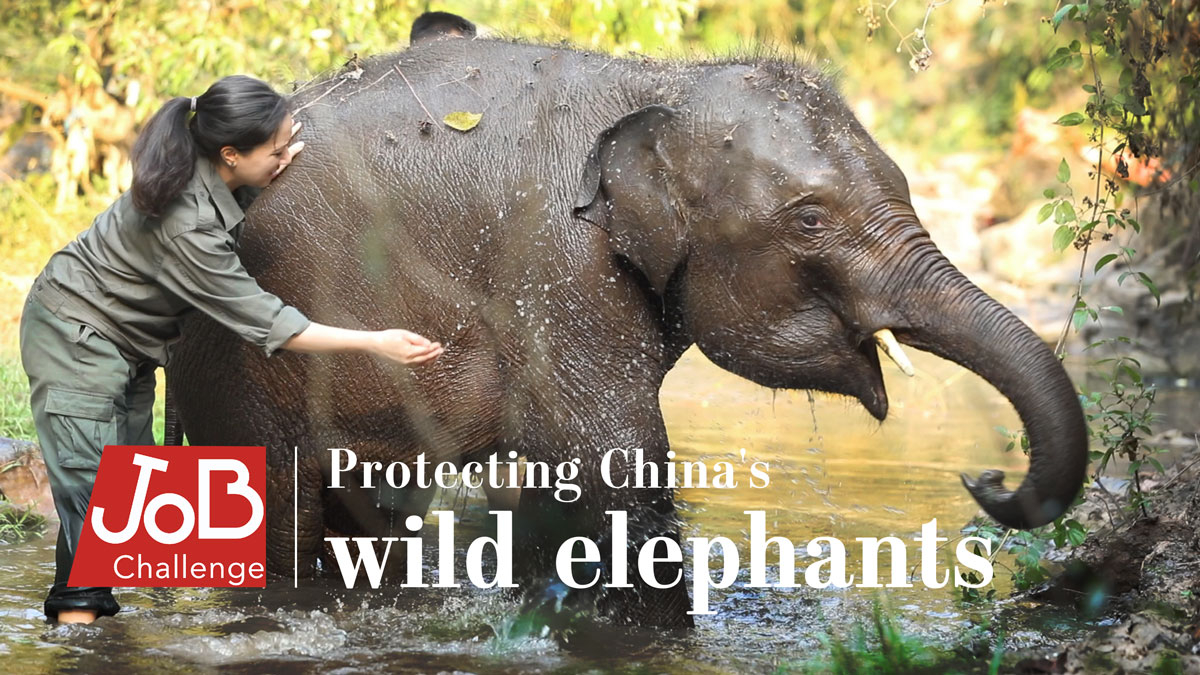
It's unnerving the first time you encounter an elephant's trunk lunging at you. Regardless that's it's a friendly gesture by a young animal used to humans. Do I pet it? Do I shake it? Does it want to sniff my hand?
I recently had the chance to work as a "Xiang baba" – an "elephant dad" – or in my case, a "Xiang mama."
This is what they call the people at the Asian Elephant Breeding and Rescue Center, near Xishuangbanna in southwest China's Yunnan province.
The province is the only region of China where wild elephants still exist. And there are just about 300 left, although numbers have gone up in recent decades, thanks to conservation efforts.
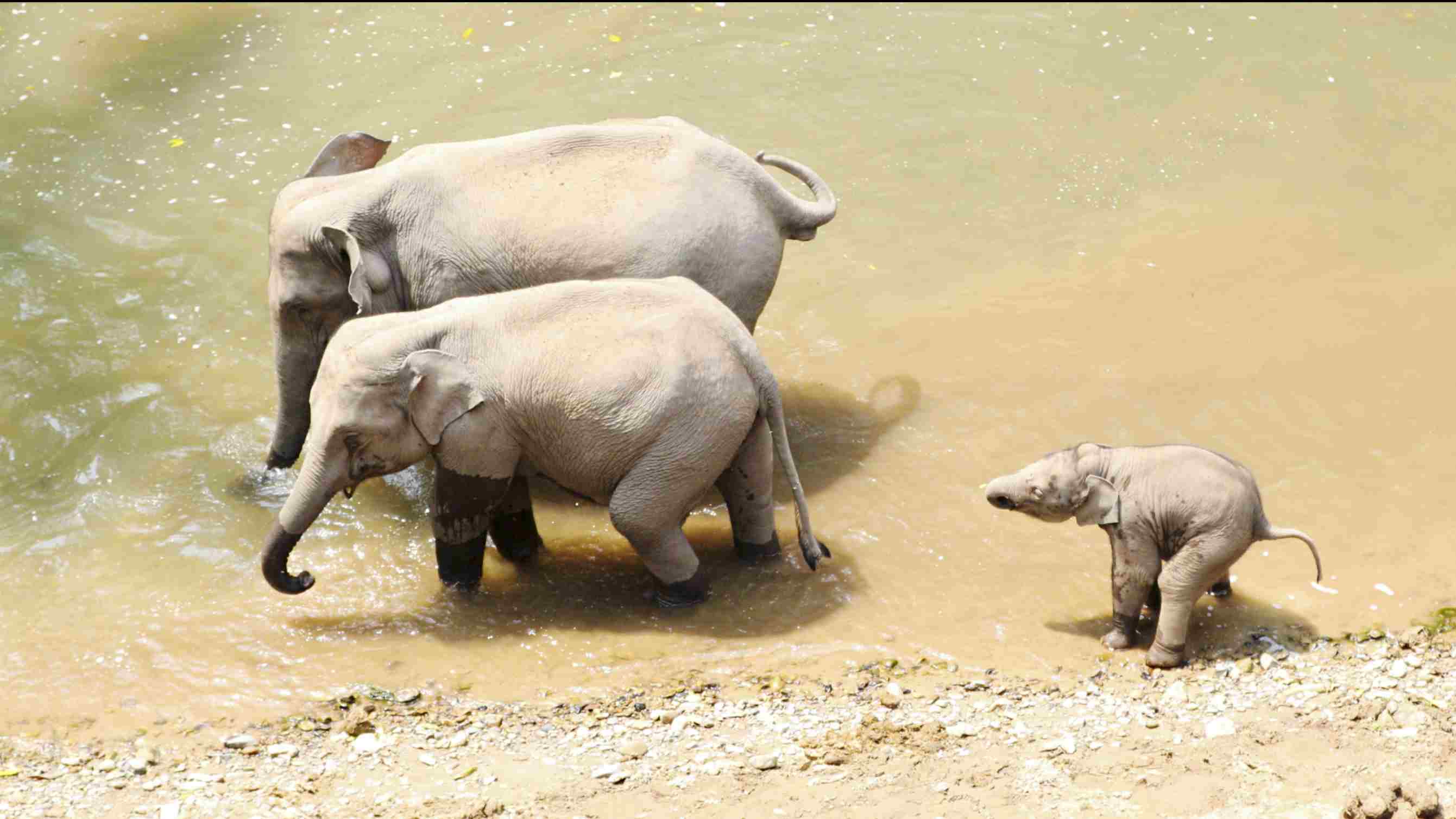
Wild elephants drink water in the river. /CGTN Photo
Wild elephants drink water in the river. /CGTN Photo
Working on the frontlines of efforts to protect China's endangered wild elephants can be dangerous. One key skill for those tracking and monitoring the local herds: the ability to climb a tree, and fast!
Li Fuming, who showed me the ropes, recounted how he once failed to quickly get out of the way of oncoming wild elephants and had to seek refuge in a tree as the animals thrashed below. I asked if he was afraid. "Of course!" was the immediate answer. Even experienced observers know not to get too close.
Most of his work is much quieter: analyzing dung and footprints in the forest, or any other trace of an elephant's passage.
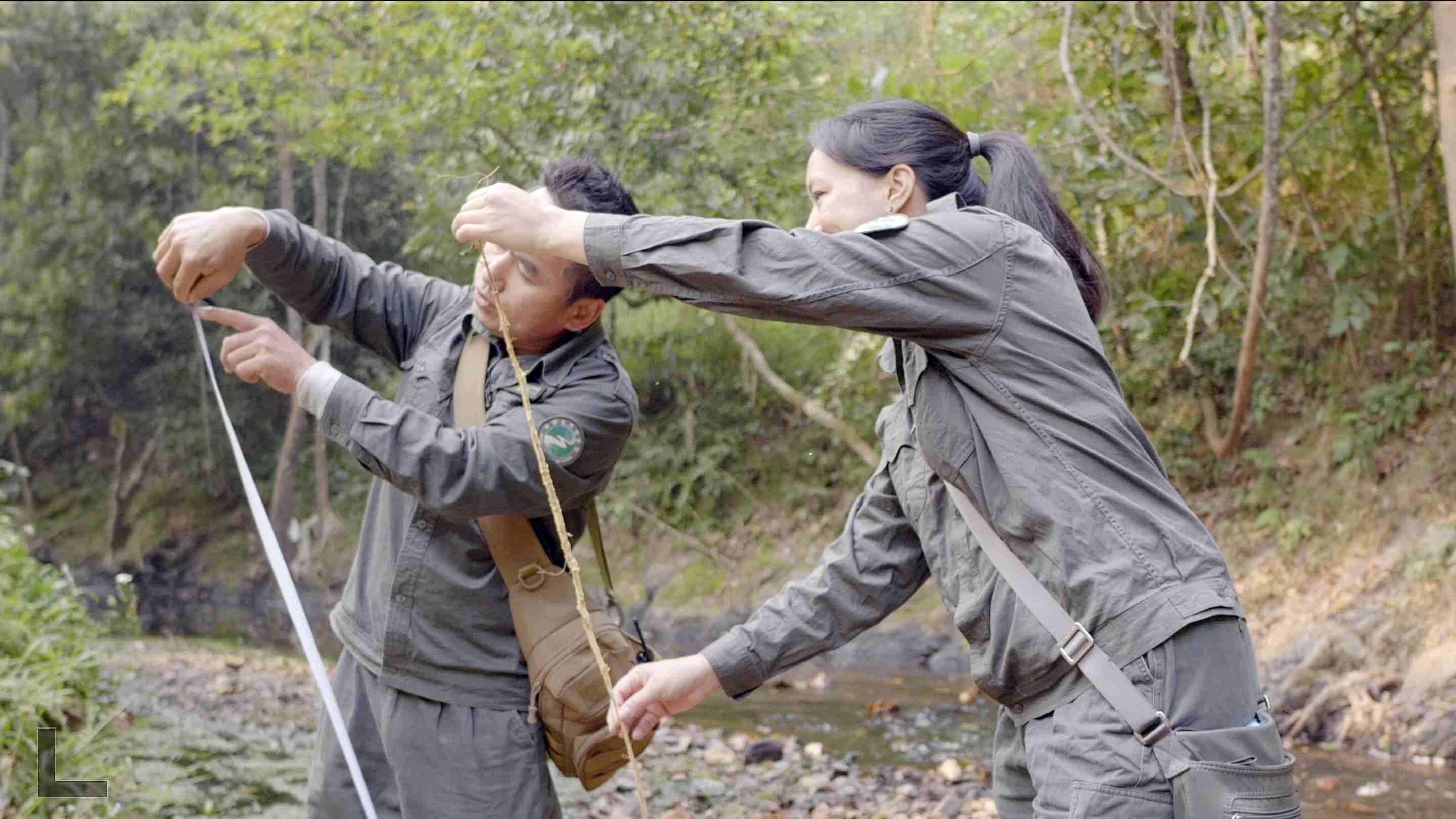
Observers track and record wild elephants' information in the wild. /CGTN Photo
Observers track and record wild elephants' information in the wild. /CGTN Photo
Observers are also the elephants' guardians, blocking traffic on the national road running through the reserve when herds want to cross – which happens almost daily during the dry season when they head to the river – and generally ensuring they remain safe.
When elephants are found wounded or abandoned, the rescue center will help.
This is where I met Xiaoqiang. Now a playful four-and-a-half year old, he was found as a baby, wandering around on his own and living off of rubbish. His survival story earned him his name: Little Strong.
Too small to be released back into the forest, he lives at the center with 16 other elephants, including six that were born there. Since 2008, the center has rescued 21 animals.
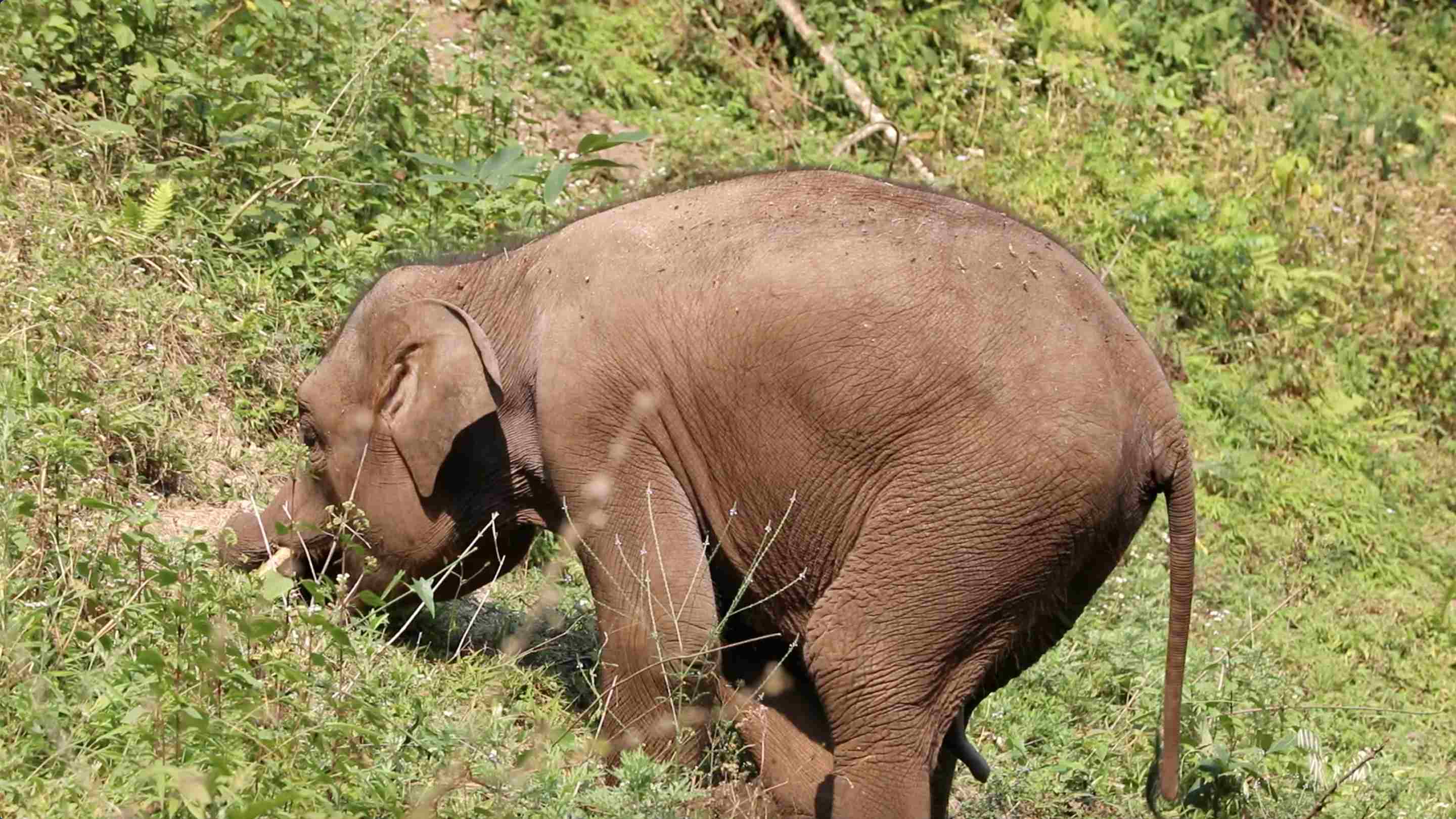
Xiaoqiang is a four-year-old rescued elephant. /CGTN Photo
Xiaoqiang is a four-year-old rescued elephant. /CGTN Photo
The job of elephant keeper is far from glamorous. Keep in mind that a young elephant produces a full wheelbarrow of dung in one night and eats about 100 kilograms of food per day. That's a lot of bananas to wash and a good amount of grass and sugar canes to hack up!
What I didn't expect was how quickly I would bond with this little animal. Elephants are such intelligent, gentle and affectionate creatures. I spent one day with Xiaoqiang and I was smitten.
We went for a jog – well, it was a jog for him, I was full-out sprinting – and we splashed around in the river, where he gleefully rolled around in the water, feet in the air.
Other keepers I spoke to all said the same thing: the highlight of their job is spending time with the young elephants. The relationship is not so much that of keeper and animal, but more of parent and child – which explains the name "xiang baba."
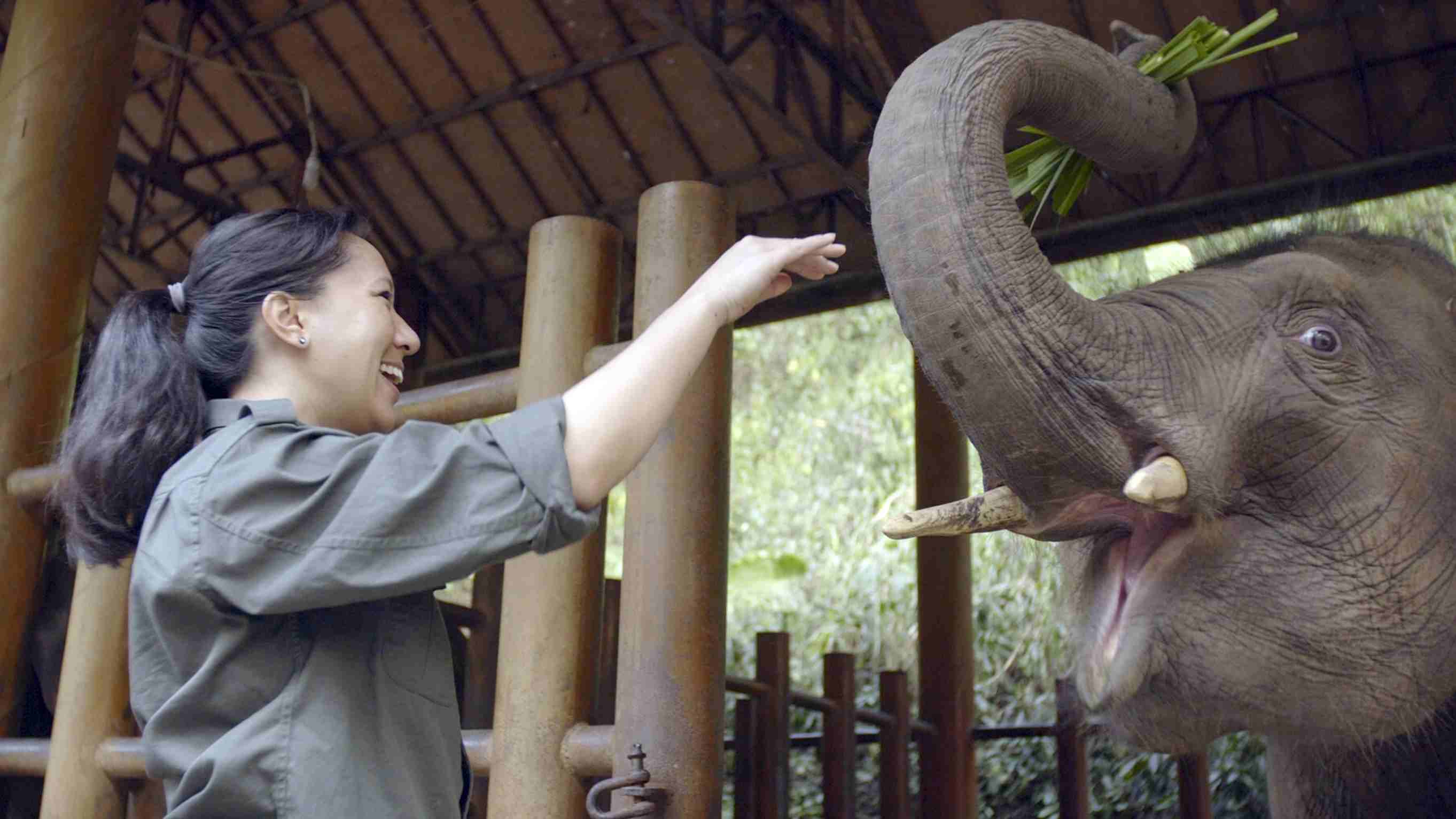
Saying goodbye to Xiaoqiang. /CGTN Photo
Saying goodbye to Xiaoqiang. /CGTN Photo
When it was finally time to say goodbye to Xiaoqiang, I was unexpectedly emotional. Who would have thought I would grow so quickly attached to an elephant?
As I stroked his head, he gripped my hand with his trunk and wouldn't let go. It might be that he was just hoping I had some grass or treats in it. But I like to think he was showing his affection, and saying goodbye too.
Director: Jiang Yuting
Filmed by: Zhang Wanbao, Chen Kairan
Edited by: Jiang Yuting
Presenter: Sim Sim Wissgott
Graphics and animation: Wang Li, Pan Yongzhe, Li Xiaojie
Article: Sim Sim Wissgott
Project Manager: Chen Kairan
Producer: Wen Yaru
Chief Editor: Qin Xiaohu
Supervisor: Pang Xinhua

SITEMAP
Copyright © 2018 CGTN. Beijing ICP prepared NO.16065310-3
Copyright © 2018 CGTN. Beijing ICP prepared NO.16065310-3